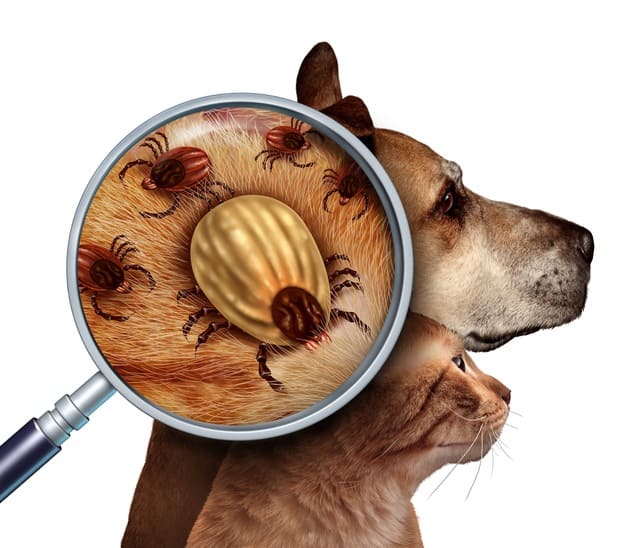“This post contains affiliate links, and I will be compensated if you make a purchase after clicking on my links.”
With relatively mild winters across many areas of the country, many pet owners are facing a higher-than average number of ticks, posing a serious threat to dogs. So, how can pet parents best prevent ticks from latching onto their furriest family members? Read on!

Dogs are very susceptible to ticks and tick-borne diseases. In its guide on how to check and remove ticks, Carrington College warns pet owners that ticks may transmit an illness within 24 hours after tick attachment while symptoms may take up to 21 days to show. Health problems indicating a tick-borne disease include difficulty breathing, neurological problems, anemia and arthritis.
While it is wise to check your dog every single time it comes in from outdoors, there are also other ways to minimize the risk of having to deal with a tick infection. Following are some common tick prevention techniques that can save you the hassle of having to pull ticks out of your dog’s fur or take your dog to the vet because it has a life-threatening infection.
Pay Attention to Surroundings
Get rid of piles of leaves, tall grass and underbrush to deprive ticks of a place to live. You may also consider removing any outdoor furniture, equipment or toys from any wooded and leafy areas in your yard. You can also fog the yard to kill any existing pests that may have taken up residence there.
If you need to leave your dog at a kennel, choose a place with care. Brown dog ticks can hatch, live and breed indoors and your dog can easily catch these ticks from another dog or a sub-par kennel environment.
Use Preventative Treatment
Oral medication and tick collars are common tick preventatives. Topical treatments include powders, shampoos, sprays and insecticides. These treatments are made by various companies but each have the same end goal to prevent ticks and kill any that may attempt to call your beloved pet home.
Alternatively, you may want to consider natural topical treatments. Herbal products using natural ingredients and may be the best option if your dog is allergic to active chemicals found in regular tick repellent treatments. Dog apple cider vinegar or garlic can also be effective in preventing tick infestation.
Keeping your dog tick-free can be a matter of life and death in extreme cases. Choosing environments with care and using effective tick repellents will reduce your chances of having to remove the nasty pest from your dog.
Checking for & Removing Ticks from Your Dog

Tick removal guide via Carrington College.
Carrington College provides vocational health training for people interested in nursing careers and veterinary technician careers. They provide “hands-on” training that uses the technologies and processes that are used in the field. Click here to learn more.



















thealchemist2020
Aug 14, 2018 at 3:48 am
Very handy guide, will implement and will soon update how it goes.
solos ads
Apr 30, 2018 at 10:52 am
great tips, my dog had ticks recently and came across this post. It really help me a lot in what to do. Thanks for sharing.
Leo Miele
Aug 4, 2017 at 2:31 pm
The best way to get rid of ticks is to prevent them in the first place! Read here for natural tick repellents – organicdailypost.com/cedar-oil-the-best-natural-tick-repellent/
Anna @HappyJackRussell
Jun 13, 2017 at 4:00 am
Great guide!
I love to hike vith my darling JRT and ticks are always a danger. Always keep some kind of pest repelant and a tick removal tool in your pet first aid kit. Personally I like all natural, organic products – they may require a bit more effort and frequency but I think they are worth not having to coat my darling with various chemicals. In any case there's a lot of diffferent products and methods for getting rid of pests out there so you should check with your vet before applying any of them to your pet.
ticks buster
Jul 31, 2016 at 11:17 pm
This guide come in handy for me. Previously my shih tzu had ticks too and took 3 months to really drive them away by applying front line and engaging pest control. Thanks for the guide